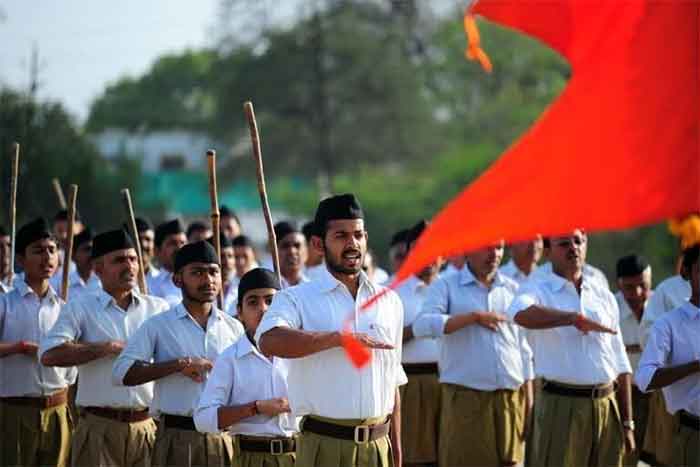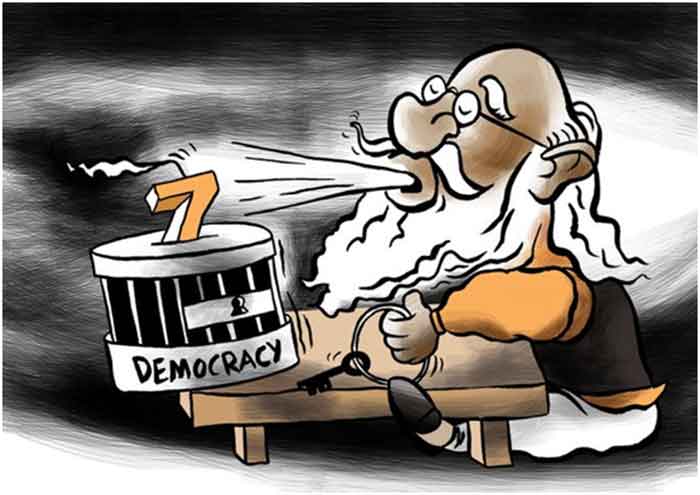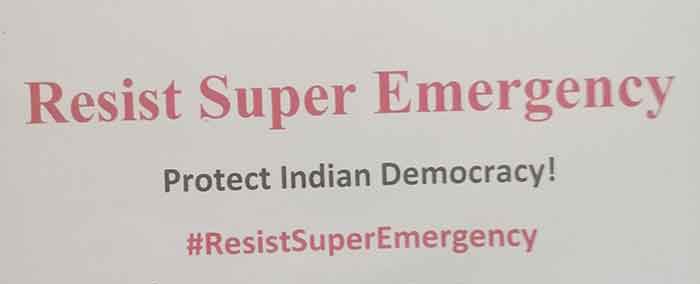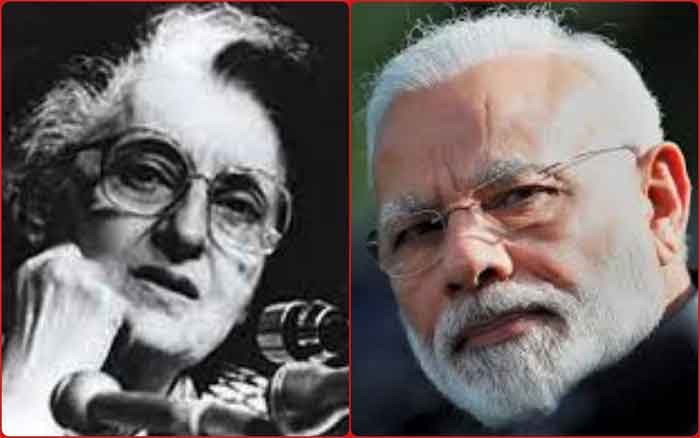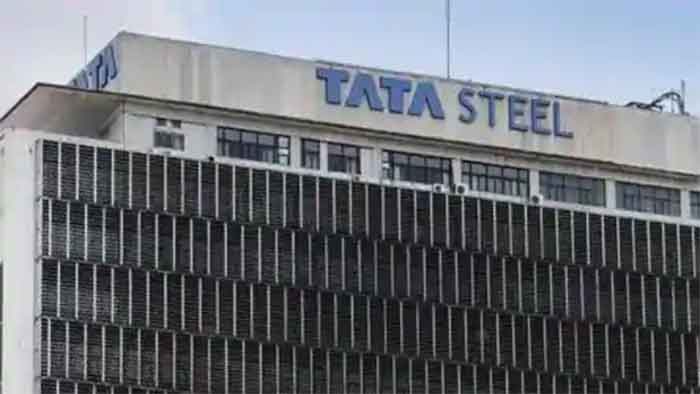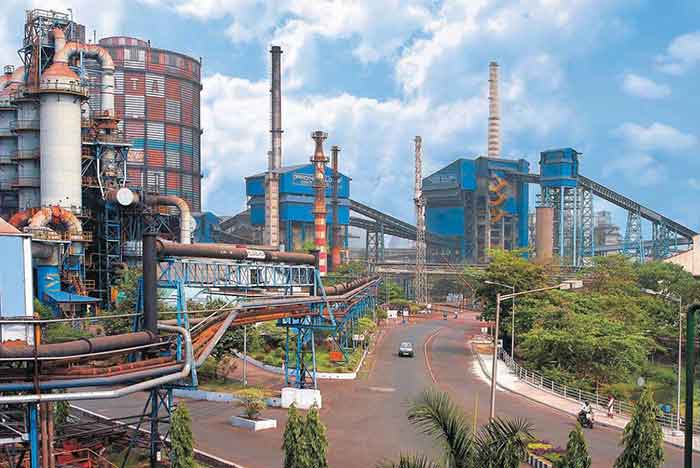
Forty-Five summers ago when Emergency was declared by Indira Gandhi, among those who welcomed it with open arms were many so-called captains of industry, notably J. R. D. Tata and K. K. Birla; they did it in the name of discipline, efficiency and good work culture. Talking to J. Anthony Lukacs of The New York Times, J. R. D. Tata said : “The parliamentary system is not suited to our needs.” (Quoted by Ramachandra Guha in his column in The Telegraph, Kolkata, January 6, 2007.) Here, it is necessary to stress that big business and undemocratic regimes have traditionally been loyal and loving partners. Cancellation of civil liberties and trade union rights – one of the principal characteristics of autocratic regimes – has been known to cause industrialists and businessmen to prosper beyond their greatest expectations.
Even Piloo Mody, normally a close friend and staunch supporter of the Tatas, found it difficult to stomach J. R. D. Tata’s support for the Emergency. At the height of Jayaprakash Narayan’s Nav Nirman Andolan in the mid-1970s against Indira Gandhi’s increasingly authoritarian rule, Mody, previously with the Swatantra Party but then with the Bharatiya Lok Dal, averred : “The absence of active participation in political affairs by the people of Jamshedpur reveals their own political backwardness, as also that of the Tatas.” J.P. himself must have experienced a sense of dismay at the absence of support from the working class of Jamshedpur. Motif, a Jamshadpur weekly, said in an editorial in early 1975 : “We have before us a signed handbill in Hindi issued by Mr. Jayaprakash Narayan from his headquarters in Patna. The handbill entitled ‘An Appeal To The Workers Of Jamshedpur’, calls upon them to rise as one against spiralling prices, corruption, unemployment and basic defects in the educational system. It also exhorts them to lend their moral and material support to the movement which has spread to distant corners of the country and which may well bring about great changes in the government of the day. In the context of J. R. D. Tata’s statement (congratulating the people of Jamshedpur for keeping away from the movement) and J.P.’s appeal, we would like to stress that political consciousness or participation does not mean destroying national or personal property, or breaking the heads of opponents. Nobody is asking the people of this city to leave their jobs and plunge headlong into the strife; it would be sheer madness to suggest anything of the sort. Rather, all that is being asked is that they cease to live in isolation in their own small island, or, to use Mr. Tata’s word, their small ‘oasis’.”
During the Emergency many government officials behaved with such contempt for democratic practice and the rule of law as to give the widespread impression that they would never be accountable to anyone for their misdeeds. These petty tyrants should have known better than to take the people so lightly. Similarly, those like J. R. D. Tata who felt a certain enthusiasm in projecting Jamshedpur as a special place with no connection whatsoever with the mainstream of political activities, should also have known better. This insular, self-congratulating attitude of claiming a superior position for the steel city contributed in no small measure to cutting it off from the culture of informed criticism without which no community can grow and evolve into a life-throbbing entity. This irresponsible attitude rightly came in for condemnation in some quarters within the city itself, but that was after the Emergency had been lifted. In this connection, the belief needs to be underlined at least thrice that even in the best of times, benevolent despotism is about the best that the Tatas can honestly claim to have given Jamshedpur. And, apparently, that is not enough to more than one ‘asking Oliver’ or ‘doubting Thomas’. Here, one can do no better than to recall Aristotle : “There is a difference between the rule of master over slave, and the rule of a statesman.” It is almost as if the wise ancient was commenting on the state of affairs in Jamshedpur and the inability of many of its inhabitants to differentiate between the real and the counterfeit.
If the Tatas had even a jot of statesmanship they would not have taken such great pains over such a long period of time practising the politics of keeping people away from politics. A strong fear of, and ferocious opposition to dissidence vitiates the Jamshedpur air. Life-affirming art and culture, for one thing, has never been encouraged by the industrial/corporate powers-that-be here. The regimented settlement has interest enough in varied frivolities and shallowness in the name of entertainment, blithely unaware of or refusing to concede that entertainment can also have a serious component providing food for thought and space for upliftment. The city has money, time and energy for eating events, fashion parades, dazzling musical extravaganzas and other expressions of crass consumerism, but for poets, writers, musicians, artists, academics and other personages committed to ‘being themselves’, whatever the pressures and blandishments to conform, it has been known to exhibit lukewarm interest at best and unconcealed hostility at worst.
It speaks volumes about the mediocrity of a ‘modern’ city of well over ten lakh people that despite the best efforts of a small but steadfast group of progressives, Jamshedpur is yet to have a university. Every time the proposal to have a university in Jamshedpur has been mooted, the long and invisible arm of forces inimical to the idea has gone into action to smother it. Not without reason is there an impression in certain quarters that the Tatas are not keen on having a university in the city. A university would mean an influx of ‘thinking’ people, men and women complete with diverse thoughts, poltics and ideologies – the last thing that the high priests of conformity and unquestioning allegiance would want. The fact is that not all the broad, clean, tree-lined, well-lit boulevards of Jamshedpur can compensate for the disdainful attitude towards the sceptical artist – the soul and conscience of a place and its inhabitants.
Astad Deboo, currently India’s best-known modern/experimental dancer who went to school in Jamshedpur where he first discovered his flair for mudra and abhinaya, is a disappointed man when it comes to discussing the city’s indifference to alternative artistic expressions. In a letter to an old school friend, namely this writer, Astad had this to say: “I have never been invited by Jamshedpur to perform. It’s always been for Loyola, my old school, that I have gone to perform… What is it that I do not do right, that keeps the corporate directors from not supporting my work…” Why just the corporate directors, what about the numerous so-called social and cultural organisations in the city of hundred plus years? What about the many schools and colleges in the city? Must only those who sell in a sub-culture of gloss and superficiality, be invited to perform? Must only icons of irrelevance, purveyors of sound and fury signifying nothing, be allowed to hold stage here? Surely, there is no rule that says that culture has to be vulturised. Perhaps, there is in the credo of the city’s corporate eminences since it fits perfectly into their agenda of turning their back on anything – artistic, intellectual or academic – that is likely to lift the spirit of the populace to levels higher than that of the pedestrian.
Another reputed artist to have come out openly against what passes for art and culture in Jamshedpur is Dr. C. Bhaskar Rao, Hindi poet and theatre personality who is on record that the city “is not congenial to poets”. Speaking to the local edition of The Hindustan Times in the summer of 2000, Dr. Rao expressed a few home-truths that are unlikely to go down well with the well-heeled of the steel city. “I was born and brought up in Jamshedpur. Since my childhood in the ’forties, the city has undergone many changes. Some may disagree with my view, but I feel that it is the city’s bustee-dwellers who have made this city livelier. Otherwise it was socially and culturally cut off from other parts of the country. Despite being in Bihar (and then Jharkhand), it remained totally aloof from the socio-political life of the State. Unlike other cities of Bihar and northern India, people here have a restricted life and restricted thought. Most of the people here do not bother about what is happening in other parts of the State. The people working in corporate houses may get good salaries and lead luxurious lives, but they remain confined to their companies… I feel that this attitude is wrong… Art and culture is unable to grow in a natural manner here because of the ‘industrialised’ environment.”
When J. R. D. Tata told The New York Times reporter that “the parliamentary system is not suited to our needs”, he was in effect justifying the excesses of the Emergency, which is hardly surprising considering the fact that strong-arm methods have since long been used by Tisco to achieve its ends. One has only to read Sukomal Sen’s Working Class of India: History of Emergence and Movement to see the myth of the Tatas being fair and generous employers roundly exploded. The 1920s saw three prolonged strikes in Tisco, the first in 1920, the second in 1922, and the third in 1928. There was similar tension in the relations between the employees and the management in the 1930s; and there was a strike in 1942. In 1922, the principal demands were reinstatement of dismissed employees, recognition of the labour union, eight hours’ general shift, no compulsory overtime, and bonus. Sen’s book is a forceful reminder that it was many years before the resentful workers would forget the management’s highhanded role during the strikes, especially the one that lasted from September 19 to October 20, 1922. Sen mentions one instance of the management going back on its word : “But almost immediately (after the workers had resumed duty) the management dismissed several employees, including Mr. G. Sethi, the secretary of the (Labour) Association, and consequently serious tension developed. Further, the management’s insistence to include non-strikers in the conciliation committee aggravated the crisis.” Anybody with even the faintest idea of what relations are like between a management and a labour union in moments of conflict and crisis would have no difficulty in appreciating with what unholy motives non-strikers and other management lackeys are included in conciliation meetings. Obviously, Tisco, like other employers of the day, had learnt their lessons in ‘Divide and Rule’ rather well from their British masters.
I remember that I was a boy when a long-retired, white-haired man with a smiling countenance, a gentle voice and a slow but steady walk would sometimes visit us. One day, my father asked me to touch his feet and seek his blessings. After he had left, I asked father why he had asked me to touch his feet. He related the old man’s history of quiet but dogged resistance as a unionist; a history of suffering borne with dignity. He was none other than the G. Sethi that Sukomal Sen mentions in his book – a target of physical assaults by hired goons when he refused to acquiesce to the Tisco management’s demands.
At about the same time that Mr. Sethi and other office-bearers of the Labour Association were being routinely intimidated, roughed up, and dismissed from service, only to be re-instated following retaliation by the workers (read the Gandhian Moni Ghosh’s Our Struggle), Tisco had a gun-toting Yankee general manager by the name of Tutweiler whose very sight was a cause for alarm to the workers, such was the man’s aggressive ways and proneness to use foul language. In my growing-up years, I would hear a lot about this man from elderly people who had no choice but to suffer his invectives and injustices. It seems that Tutweiler was in the habit of stationing himself in front of the steel plant’s main gate with a gun slung over his shoulder to instil fear into the hearts of all those entering or leaving the factory. Every worker was expected to bow low and give him a salaam; and the lord help him who had other ideas in his head. One day, a young daredevil wishing to test the waters, so to say, went past Tutweiler without giving him the customary salaam, whereupon the big man pounced on him, punched him in the face, and threatened to shoot him if he repeated the lapse. From this the reader can well visualise the atmosphere in which the Tisco workers worked. There is no evidence of the company’s highest management in Bombay House, headed by the founder’s son, Dorabji Tata, taking any action against the likes of Tutweiler. In fact, all that the management was interested in was getting the work done, what if in the process some American and British officers behaved as they wished.
The 19-month curse of the Emergency rested on the twin pillars of fear and sycophancy. In Jamshedpur, judging by the actions and reactions of the overwhelming majority of its inhabitants, it looks like there was always an Emergency here. The Tatas have orchestrated the scheme of things in such a manner – carrot for the ‘yes-man’ and bamboo for the ‘nay-sayer’ – that the free air of reason, logic and argument will never enter the sealed chamber holding the collective benighted soul. An otherwise obnoxious Lal Krishna Advani’s telling comment that asked to bend, during the Emergency the Indian media crawled, comes to mind. Countless Jamshedpurians appear to derive inordinate satisfaction from prostrating themselves before the Tatas. When they are not driven by fear of persecution, they do what they do out of a pathological love of sycophancy.
However, sometimes to the intense discomfiture of the blue-blooded objects of idolatry, even here there appear some determined individuals who will simply not demean themselves in their own eyes or in the eyes of the small, enlightened section of society given to behaving similarly. Ronald D’Costa, a third-generation Jamshedpur hotelier with close business ties with many a local corporate entity, minced no words criticizing the authoritarian ways of Tisco whilst speaking to a visiting Asian Wall Street Journal reporter. D’Costa: “It’s (Jamshedpur is) like 1984. Big Brother watches over you all the time.”
Just as the likes of D’Costa, admittedly few and far between, need to be mentioned in order to differentiate between molten metal and dispensable scrap, so too Advani should have qualified his condemnation of the Indian media, a la Emergency, by pointing to honourable exceptions like Kuldip Nayar, Gourkishore Ghosh, B. G. Verghese, Abu Abraham and others who simply refused to be led by the nose like dumb, driven cattle.
( Vidyarthy Chatterjee writes on cinema,society, and politics.)
SIGN UP FOR COUNTERCURRENTS DAILY NEWSLETTER

